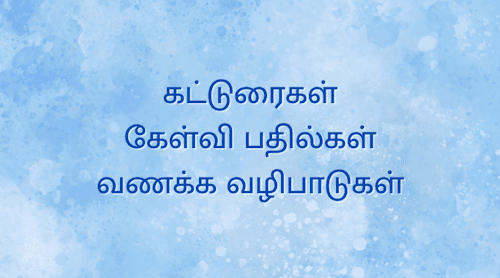“Each of the Messengers of God were sent with Miracles and Quran is the Miracle given to me” — Prophet Muhammad (pbuh) (Refer Bukhari 4598 and 6372)
Before Reading
It should be remembered that the Holy Quran is not an ordinary Book, which is a compilation of a various details under certain titles, instead it is a collection of various guidance given by God by twenty three years under various circumstances.
A father with exemplary character, conduct and wisdom gives counsel to his son on various occasions. How would they have been arranged, If all the counsels given by the father over ten years have been compiled
- He would have repeated this year some of the advices already given by him, during the last year.
- He would have uttered his advices seven or eight times
- He would have given some of his advices only once
- He would have repeated again and again the same advice because of the importance of the matter.
- Or he would have repeated this advice because to his son would not have followed his advice properly.
Similarly certain things have been repeated again and again in Quran
If all the advices given by the father to his son for the past ten years have been compiled, those advices could not have been compiled and arranged under any title.
- The father would have discussed about patience when his son was in a angry mood.
- Next day, when there is examination he would have talked about the significance of studies
- The day after, he would talk about the importance of the consumption of food if the son had been reluctant to eat.
- The very next day, when he finds him behaving with his mother ill-mannerly, then he would admonish him regarding it.
These things would not have been said in a serial order. Usually, a father does not advice his son, keeping in his mind to talk on some title on a particular day and to discuss things as another title on some other day. He would plan only to advice his son on specific matters whenever necessary.
Similarly, the Holy Quran has also mentioned many such teachings. Hence, it can be observed in the Holy Quran that certain maters are neither repeatedly mentioned nor they are framed under a specific title. There are also instances in which whatever is instructed earlier has been changed later
Generally, differences remain between the spoken language and written language. If we observe any leader on the stage, he will speak, “His rule is the worst one, and corruption has become rampant in his rule. My foremost aim is to remove him from the chair.” We can note that initially he used the third person ‘His” in speech and later he changed it to the second person ‘You’.
The usage of ‘His’ and ‘You’, refer only to the same person and we can see that this type of usage is common in all the languages of the world.
We can observe such things not only in the speech given by a person on a stage but also in his conversation with his family members at time.
Initially while speaking, he will say, “Your arrogance has increased” and suddenly he will start saying in his speech, “Peace will prevail only if he is expelled from the house.” Many such instances can be commonly noted in the conversation of all the people.
Such usages will not be used in a written language. The Holy Quran is not revealed in a written form. It is revealed only in a spoken form. That is how, we find in the Holy Quran also, such frequent occurrences of changes in the usage.
While in speech the second person “You” will suddenly be changed to third person “They”. It is because the Holy Quran which was revealed in spoken form, the same was retained in the written form also.
Even in the advice given by the father to his son changes in the advice occure according to the circumstances.
The Father, who said earlier that his son should not go our of his house to play, when he was four years old, will later, when his son become fifteen years old, will ask his son to go out of the house and play. Both the orders, though they are different, are used in different context.
Likewise, certain teachings of Quran which have been uttered in different contexts may look like contradicting one another. In such places we have given explanation for this in the notes.
God, while referring to “Himself” in the Holy Quran addressed Himself as “I” only in a few places. In most of the places He addresses Himself as ‘We’. Such usage among the individuals found in Arabic as well as in other languages of the world. We also refer, “This is my house’ as ‘This is our house’, we will assume that there is a share for other people also in our house.
Even while introducing our own son, we refer to him as ‘our son’ instead calling of him ‘my son’. This is not understood wrongly. It is not understood in its literal sense. Similarly, such words ‘We”, ‘Us’, etc are used in Quran.

